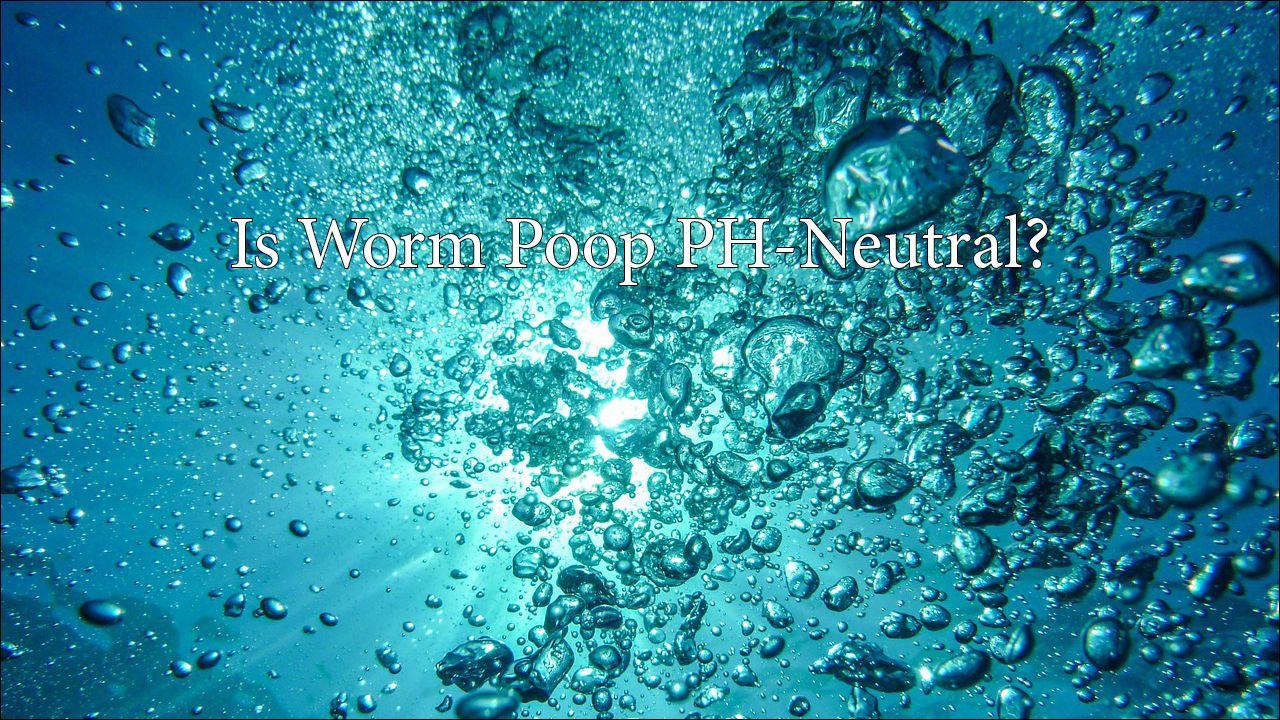
Worms, those unassuming and industrious creatures, have long held a special place in the world of composting and soil enrichment. Their remarkable ability to convert organic waste into nutrient-rich vermicompost has made them a staple in sustainable agriculture and gardening practices. One common question that often arises in the realm of vermiculture is whether worm poop, also known as vermicast or worm castings, is truly pH-neutral. In this comprehensive article, we delve into the world of worm excreta and explore the science behind its pH properties. Let’s dispel myths, answer frequently asked questions, and shed light on the intriguing nature of worm poop.
The pH Conundrum: Debunking Misconceptions
The pH level of a substance refers to its acidity or alkalinity, which is measured on a scale of 0 to 14. A pH value of 7 is considered neutral, while values below 7 are acidic and values above 7 are alkaline. The idea that worm poop is pH-neutral is a prevailing belief among many gardeners and compost enthusiasts. However, this assertion requires a closer examination.
Is Worm Poop Truly pH-Neutral?
Contrary to popular belief, worm castings are not inherently pH-neutral. The pH of worm poop can vary depending on several factors, including the diet of the worms, the types of organic materials they consume, and the conditions in which the vermicomposting process takes place.
Worms consume a diverse array of organic matter, ranging from kitchen scraps to yard waste. This eclectic diet can influence the pH of their excreta. Additionally, the pH of the starting materials and the environmental conditions of the worm bin play a significant role in determining the pH of the resulting vermicast.
Factors Influencing pH in Worm Castings
- Diet Diversity: The pH of the materials worms consume can affect the pH of their excreta. Acidic materials, such as citrus peels, can contribute to slightly lower pH levels, while alkaline materials might lead to more alkaline castings.
- Microbial Activity: Vermicomposting involves a rich microbial ecosystem that interacts with the organic matter being broken down. Microbial activities can influence pH changes in the vermicompost.
- Bin Environment: Factors such as moisture, temperature, and airflow within the worm bin impact the decomposition process and thus influence the pH of the final product.
Frequently Asked Questions (FAQs)

Q1: Are worm castings always pH-neutral?
No, worm castings are not always pH-neutral. The pH of worm castings can range from slightly acidic to slightly alkaline, depending on the factors mentioned above.
Q2: How can I determine the pH of my worm castings?
To determine the pH of your worm castings, you can use a pH testing kit or a pH meter. Collect a representative sample of your vermicompost and follow the instructions provided with the testing kit.
Q3: Can I adjust the pH of worm castings for my plants?
Yes, you can adjust the pH of worm castings before using them in your garden. If the pH is too far from the desired range for your plants, you can amend the castings with materials like agricultural lime (to raise pH) or sulfur (to lower pH).
Q4: Are there any benefits to the varying pH levels in worm castings?
Yes, the varying pH levels in worm castings can be beneficial. Different plants have different pH preferences, and having a range of pH values in your worm castings can cater to a variety of plant needs.
The notion that worm poop is universally pH-neutral is a misconception that merits correction. Worm castings exhibit a range of pH levels, influenced by the worms’ diet, microbial interactions, and bin conditions. Understanding these factors is crucial for gardeners and researchers alike, as it informs the appropriate use of vermicast in different cultivation scenarios. By dispelling this myth, we empower ourselves to make more informed decisions in our pursuit of sustainable and productive gardening practices.
Don’t miss out on the incredible soil-enriching properties of worm castings.